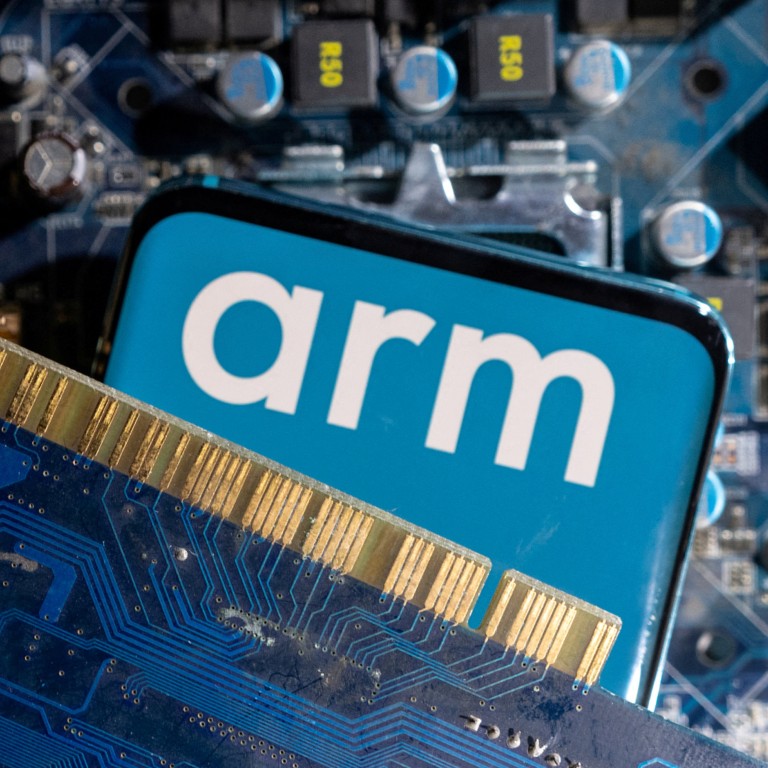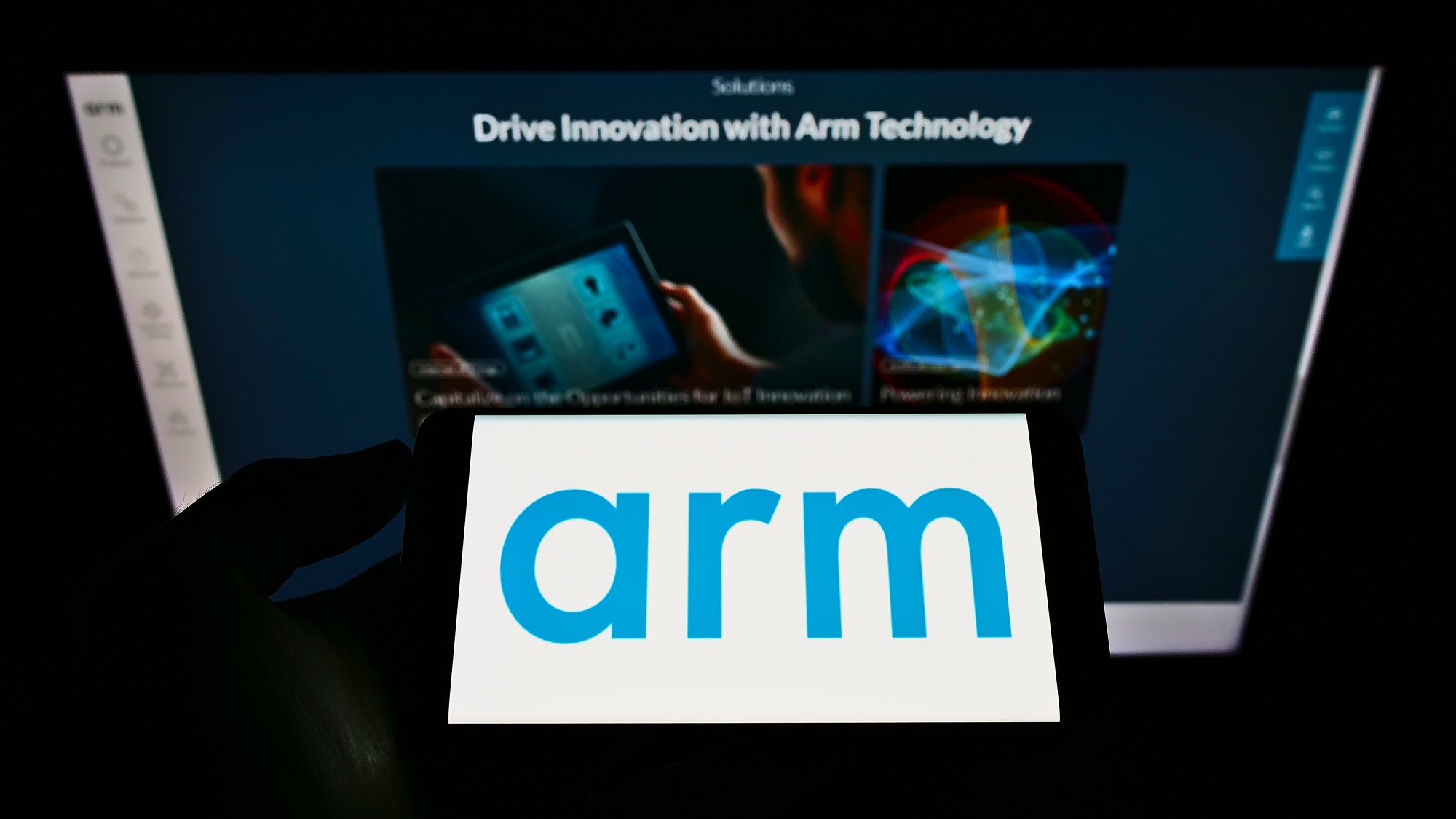
Softbank-backed Arm warns of ‘significant’ China risk, mentioning the country 350 times in its IPO prospectus
- The interest in Arm will be keenly watched as a litmus test for investors’ appetite for the geopolitical and market risks associated with China
- Arm grabbed headlines in China last year after a bitter boardroom dispute broke out between the Chinese subsidiary and its former head Allen Wu
British chip architecture firm Arm has warned investors of “significant” economic and political risks from China, where it derives one quarter of its revenue, in its prospectus published this week.
Arm, owned by Japan’s SoftBank Group Corp , filed for its initial public offering (IPO) on the New York Stock Exchange on Monday, in what is likely to be the biggest IPO in nearly two years. But the future of the Cambridge, UK-based chip-design firm is overshadowed by its exposure to China, which contributed a quarter of revenues in the 2023 fiscal year.
“Arm flagged some risks related to its China business such as incomplete control or lack of oversight in its China venture,” said Brady Wang, an associate director with research firm Counterpoint.
The interest in Arm’s shares will be keenly watched as a litmus test for investors’ appetite for the geopolitical and market risks associated with China amid a shift to tech decoupling. In the risk section of the 229-page prospectus, Arm went to lengths to articulate what it sees as political and commercial risks in China.
US wants Chinese chips 5 generations behind cutting edge, executive claims
Arm Technology (China) Co, or “Arm China”, was referred to 208 times in the prospectus. “China” was mentioned 222 times while “PRC”, the acronym for the People’s Republic of China, was cited 130 times.
Arm said it was “particularly susceptible to economic and political risks affecting the PRC, which could be exacerbated by tensions between the US or the UK and the PRC with respect to trade and national security”.
The company said it depends on its ties with Arm China, an entity that operates independently and serves as its biggest client, to access the Chinese market. “If that commercial relationship no longer existed or deteriorates, our ability to compete in the PRC market could be materially and adversely affected,” Arm warned.
“Nearly all semiconductor firms have troubling exposure to China, but Arm’s problem is that they have had to air their ‘dirty laundry’ in an IPO prospectus,” said Woz Ahmed, a former senior executive at UK-based Imagination Technologies, a semiconductor design and intellectual property (IP) company bought by Canyon Bridge Capital Partners, a private equity fund based in Beijing. “What happens next depends on how people feel Arm can grow outside China. It is not clear cut. This will impact valuation,” Ahmed added.
New US investment curbs to have limited impact on China’s targeted tech sectors
Arm grabbed headlines in China last year after a bitter boardroom dispute broke out between Arm China and its former head Allen Wu. In April 2022, Arm was able to oust Wu and appoint two new CEOs, ending the two-year drama in what was widely seen as a victory for Arm in taking back control of the company. However, Arm said in its prospectus that neither itself nor SoftBank Group control the operations of Arm China.
Arm transferred its entire stake in Arm China to an entity called Acetone, a subsidiary controlled by SoftBank. After the transfer, Arm owns a 4.8 per cent indirect ownership in Arm China, guaranteed by its 10 per cent non-voting interest in Acetone.
Arm sells chip design architecture and other semiconductor IP to Chinese clients exclusively via Arm China, a joint venture founded in 2018 when SoftBank sold a 51 per cent stake of the British firm’s mainland subsidiary to a Chinese consortium for US$775.2 million.
Arm China saw its business take off over the past few years after being elevated to an independent entity from a regional sales office. Arm’s revenue from China accounted for about 25 per cent of its worldwide total in financial year 2023, up from 18 per cent in 2022.

In its prospectus, Arm also flagged China’s semiconductor self-sufficiency drive as a potential risk for its business in China, citing Beijing’s tacit goal of having up to 70 per cent of chips locally-produced by 2025. Arm’s architecture is predominantly used in chips for applications ranging from smartphones to Internet of Things devices due to its low-power consumption and high performance.
Western companies control large swathes of semiconductor design IP, including instruction set architecture and chip design software, which are used to design and test chips before they are sent out for wafer fabrication.
Counterpoint’s Wang said headwinds in China’s smartphone market this year could affect Arm’s valuation ahead of the listing.
In a note, tech consulting firm D2D Advisory said, “Our impression is that Arm resembles a low-growth company coming to market to satisfy the liquidity needs of its private equity owners.”
Arm’s chip architecture is the most widely used outside Intel’s, which is more common in personal computers. Its power efficiency has made it the preferred architecture for mobile devices and IoT devices, but it also has a growing presence in servers. Arm’s total revenue for fiscal year 2023 declined to US$2.68 billion from US$2.7 billion in the previous fiscal year.

